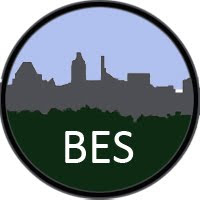This research was supported by funding from the NSF Long-term Ecological Research (LTER) Program. This material is based upon work supported by the National Science Foundation under Grant Nos. DEB-1637661 and DEB-1855277. Any opinions, findings, and conclusions or recommendations expressed in this material are those of the author(s) and do not necessarily reflect the views of the National Science Foundation.
The Baltimore Ecosystem Study has been a National Science Foundation Long Term Ecological Research (LTER) site since 1998. Visit other LTER sites.
 |
 |

The Evolution of Urban Heterogeneity Thinking
The heterogeneity of cities has been acknowledged as one of their most striking features for a very long time. Spatial heterogeneity characterized the ancient, cosmologically oriented cities of the Middle […]
The 2015 BES Data Jam: A Contest of Science, Creativity, and Communication
The idea of data jamming, exploring openly available data in a collaborative way, sounds a lot like jazz. A data jam is an event that brings people together to explore […]
Urban Ecology: Knowing or Making?
Our friend and colleague, Alex Felson, of the Yale School of Architecture and the Yale School of Forestry and Environmental Studies has a unusual perspective on what urban ecology is […]
The Human Ecosystem: What’s Missing?
The human ecosystem concept is one of the most common tools used in the Baltimore Ecosystem Study LTER. Adopted from a team of social ecologists and sociologists who were involved […]
The Kind of Solution A City Is
A while ago I wrote about Jane Jacobs’ insight that cities were complex systems[i]. The stone that she dropped in the urban pond in 1961 has rippled widely, and the […]
Why Come to Africa to Fully Understand Urbanization?
The transformation of the Earth’s human population to a predominantly urban home is one of the major milestones of the 21st century. While urbanization in industrialized regions such as the United […]
BES Sexual Harassment and Discrimination Policy
The posts here often discuss conceptual issues, ideas and empirical insights, and opportunities for learning and communication that can promote the science, education, and community engagement of the Baltimore Ecosystem […]
Theory of Urban Heterogeneity
In order to plan for the next phase of BES, we are beginning to consider theoretical frameworks. Here is the current status of that search. A Multitude of Urban Theories. […]
Baltimore and Beijing: A Learning Expedition to China
Famously Rampant Urbanization This last summer, I had the pleasure of being hosted as a Visiting International Professor by the Research Center for Eco-Environmental Sciences in Beijing. This center is […]
BES Book of the Year, 2014-2015: Gottdiener and Hutchinson, The New Urban Sociology
The previous Book of the Year focused on bio-ecological theory. Because BES is a social-ecological research and education endeavor, the Project Management Committee agreed that this year our book should […]